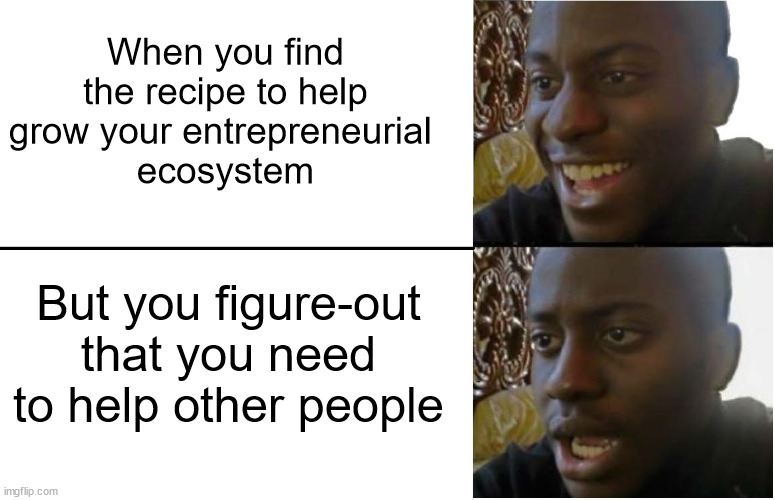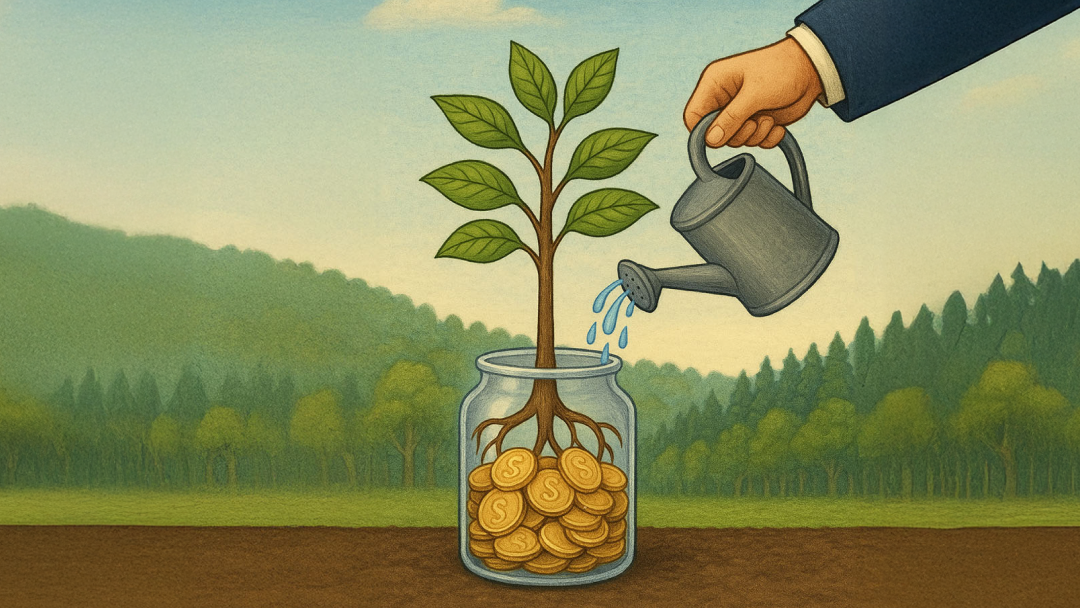Articolo di Federico Micol, dottorando del Politecnico di Torino con una forte passione per lo sviluppo di startup Deep-Tech. Da diversi anni studia processi di trasferimento tecnologico, finanza imprenditoriale e sviluppo di ecosistemi imprenditoriali. Da febbraio 2023 pubblica regolarmente contenuti sul suo blog Deep-Tech 4 Dummies con l’obiettivo di stimolare riflessioni e aumentare la consapevolezza su tematiche legate al mondo dell’innovazione.
Per crescere e prosperare, ogni organismo complesso ha bisogno di vivere in un capace di fornirgli tutti i nutrienti necessari per il proprio sviluppo.
Per avere una possibilità di sopravvivere e crescere, anche le startup hanno bisogno di terreno fertile per germogliare e di un corretto apporto di risorse, connessioni e competenze da parte dell’ambiente circostante per mettere radici e crescere. Le startup infatti non crescono dal nulla ma necessitano di ecosistemi imprenditoriali in grado di facilitare questi processi.
Un ecosistema imprenditoriale è rappresentato dalla rete di attori e organizzazioni che interagendo possono facilitare la nascita e la crescita di startup innovative. L’ecosistema imprenditoriale più famoso al mondo è forse la Silicon Valley. Patria di colossi tecnologici come Apple, Google, Facebook (anche esse, a loro tempo, startup) e di alcuni dei fondi di investimento più grandi e di maggior successo al mondo (come Sequoia, Accel e a16z), a partire dal 1970, quest’area del mondo ha visto concentrarsi nell’area un insieme sempre più denso di startup, aziende, talenti, laboratori di ricerca e capitali di rischio.
Guardando al successo imprenditoriale della Silicon Valley, altri paesi hanno cominciato a chiedersi se fosse possibile trasformare la propria regione in un ecosistema simile a quello della valley.
Sfortunatamente però è estremamente improbabile riuscire a replicare il successo della California, perché ciò che realmente guida l’evoluzione degli ecosistemi imprenditoriali è il modo in cui le persone agiscono all’interno dell’ecosistema. Ogni organismo di un ecosistema infatti tendenzialmente non può sopravvivere se gli altri organismi intorno a lui non gli forniscono le risorse necessarie a sostentarsi. Se tutti pensano esclusivamente a sé stessi e non cooperano con gli attori dell’ecosistema, cercando di capirne necessità e obiettivi, ci sarà sempre poco spazio per costruire rapporti di fiducia necessari per ridurre le barriere alla condivisione della conoscenza e alla circolazione delle risorse.
Diversi studi (tra cui Hwang & Horowitt – The Rainforest; Saxenian – The regional advantage; Taylor, 2016 – The Politics of Innovation) hanno infatti avanzato l’ipotesi e provato che il successo di intere regioni o paesi è largamente dovuto al modo in cui gli attori interagiscono tra di loro, e di conseguenza dalla facilità con la quale risorse e informazioni circolano nell’ecosistema stesso, e non tanto da quanto l’ecosistema sia ricco di risorse. In questi “sistemi complessi” gli outcome dipendono infatti fortemente da qualità e quantità delle interazioni tra i partecipanti, pertanto il comportamento degli attori del mondo dell’innovazione (sia come singoli che come collettività) ha la capacità di influenzare fortemente ciò che potrà accadere in futuro. Questo fenomeno rende quindi estremamente improbabile (ma non impossibile) che si riescano a creare regioni altamente imprenditoriali a meno che non si riescano a instaurare dei meccanismi virtuosi che riescano a migliorare l’aspetto relazionale dell’ecosistema.
La crescita del tuo ecosistema imprenditoriale locale dipende quindi fortemente da come tu (imprenditore, investitore, dipendente aziendale o politico) ti relazioni con gli altri attori dell’ecosistema.
Ognuno di noi ha quindi il potere di cominciare a costruire (o rinforzare) queste relazioni, agendo nel presente per cercare di aumentare il livello di fiducia tra gli attori dell’ecosistema e cercando di costruire e rafforzare il senso di comunità.
Come? Brad Feld, creatore dell’acceleratore Techstars e autore del libro The Startup Community Way, suggerisce che semplicemente aiutare qualcuno senza aspettarsi di ottenere nulla in cambio si può favorire lo sviluppo della propria regione. Questo non vuol dire dedicare tutta la propria giornata a supportare gli altri, ma cercare di spendere qualche minuto ogni giorno per supportare qualcun altro.
Sicuramente sei esperto in qualcosa o conosci qualcuno che potrebbe aiutare qualcun altro. Per quanto possa sembrare banale, adottare la filosofia del “favore di 5 minuti” e fare un’introduzione tra due persone del tuo network, fornire il link di una risorsa utile per il tuo investitore, o spendere qualche minuto per ascoltare i dubbi di un altro founder e aiutarlo su un problema tecnico, se fatte con costanza nel tempo da molti attori, possono accelerare l’evoluzione dell’intero ecosistema.

Non comportarti quindi come il ragazzo del meme: sii gentile e cerca di aiutare chi, come te, ha a cuore la crescita della comunità imprenditoriale locale, e inizia a comportarti come il mentor che hai sempre sognato di avere.
Leggi la versione estesa dell’articolo su Deep-Tech 4 Dummies





